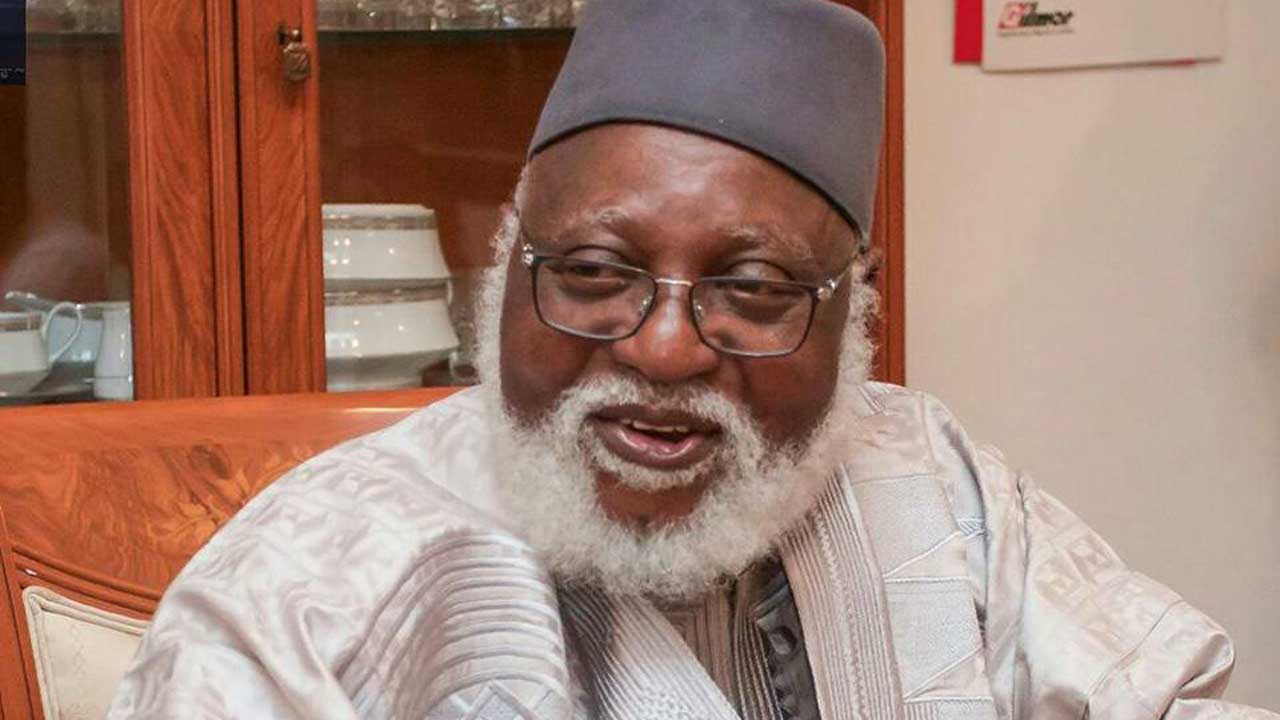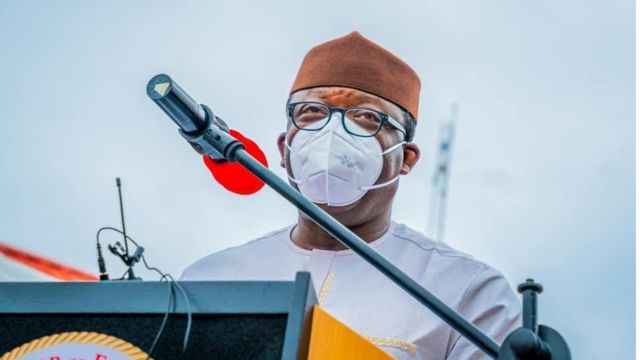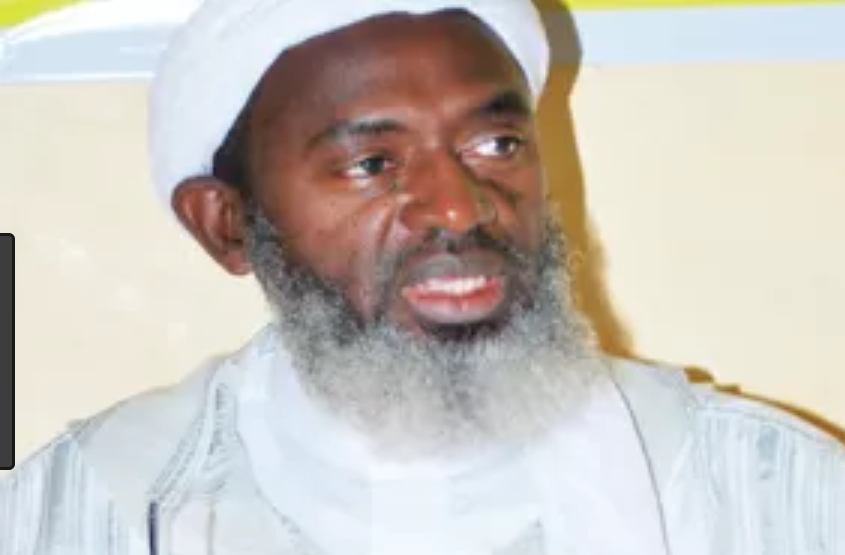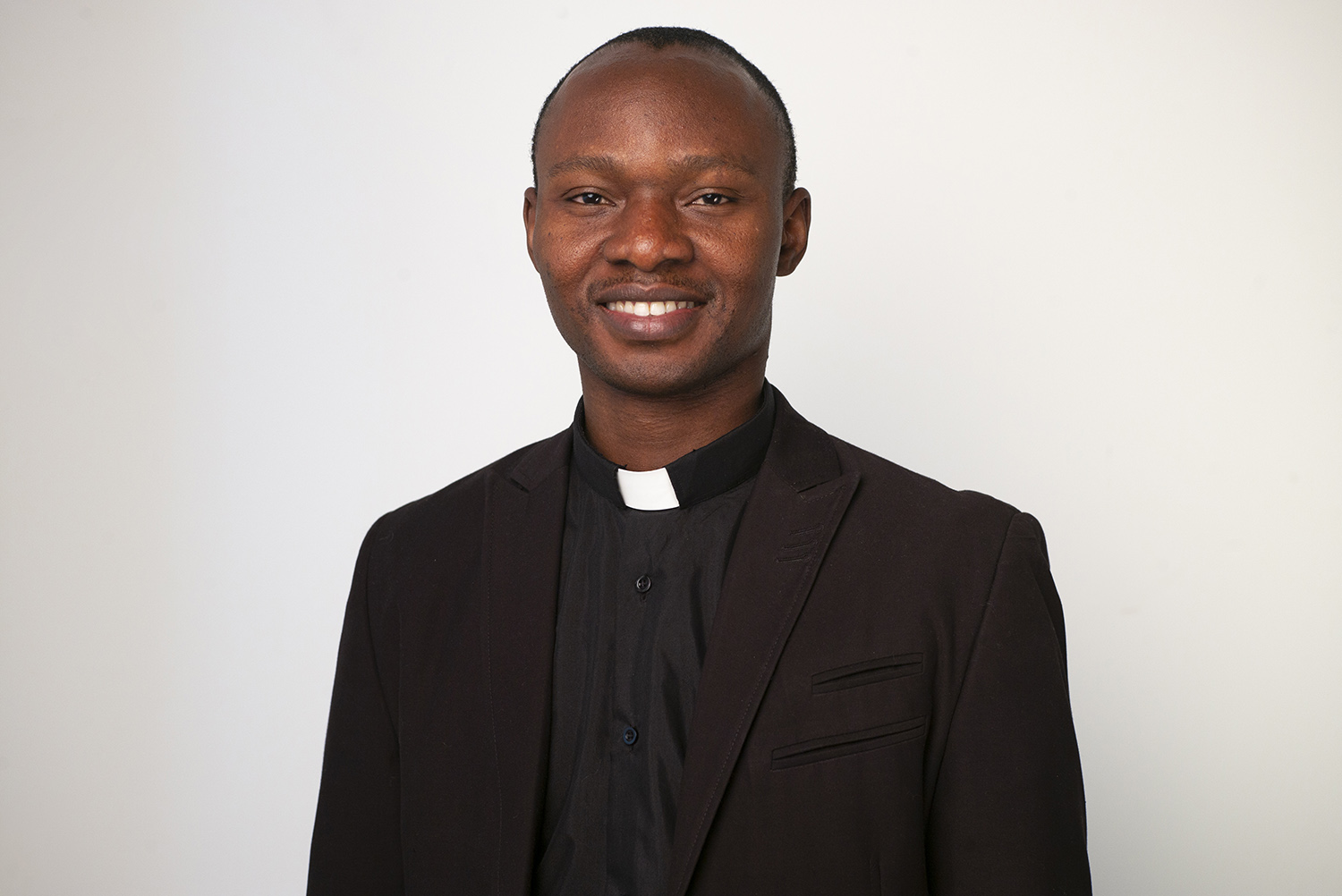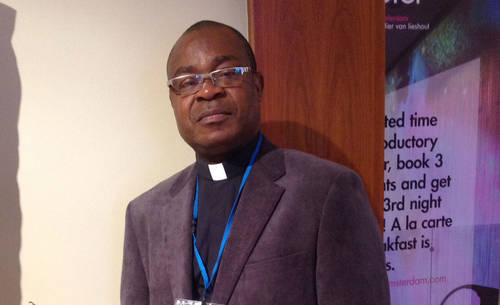By Magnus Onyibe
In desperate search for how to get rid of the demon strafing our country, Nigeria, I recently, re-read the epic novel by the renown author, Chinua Achebe, “The Trouble With Nigeria”
Reading through the book the first time , l saw that the conclusion is that the trouble with Nigeria is the leadership. When l read it the second time,l realized that the trouble with Nigeria is not just with the leaders,but the real trouble is with the leadership of Nigeria that fails to live up to the expectations of their country men and women in such a manner that they would be regarded as patriots.
In exasperation , you may exclaim, what’s the difference between leaders, leadership and patriots ? Same difference , you would conclude.
Well, it is not quite as simple as you might have thought or may be thinking.
That’s because there is an explanation for blaming the trouble with Nigeria on the leaders and leadership that are not patriots. And that presupposes that it’s only leaders that engender or manifest great leadership that can be identified as patriots.
Here is how Achebe, the master of African story telling puts it :
“Nigerians are what they are only because their leaders are not what they should be.” .
He continued.
“A true patriot will always demand the highest standards of his country and accept nothing but the best for and from his people. He will be outspoken in condemnation of their short-coming without giving way to superiority, despair or cynicism. That is my idea of a patriot.”
By blaming the leadership for Nigeria’s inability to become what it has potentials to be , Achebe was referring to the absence of patriotic Nigerians in various leadership positions including our roles as parents.
So it is not just about the leadership in the presidency, but the leadership that Achebe is referring to would include the legislature, judiciary and even the fourth realm of the estate , the media, civil society, including faith leaders and traditional rulers and as well as parents in our homes.
Thats the whole gamut of the leadership of the respective arms of government and the media,civil society as well as the clergy in the church, mosque and traditional rulers who are the custodians of our cultural heritage, including as fathers and mothers .
At this juncture, allow me crave your indulgence to
play the devil’s advocate by arguing that we are all collectively guilty for allowing some of our actions and inactions perceived as injustice to others fester and drive the less patient ones amongst us into engaging in anti-social behaviors like religious insurgency , terrorism banditry, cultism, kidnapping and ritual killings etc.
Owing to space constraints, l will be focusing only on religious insurgency in this essay .
While taking cognizance of the wise crack , a fish starts rotting from the head, Nigeria cannot continue to be likened to a fish which has been the most convenient analogy of the trouble with our country. Alternatively, let’s liken our country to a river. And as we are well aware , when a river is polluted from the source or fountain , the pollution finds its way down the entire course of the river as it cascades. And in this instance, our home , where we were born or grew up and the society are the source.
Given the scenario described above , it would be obvious that the trouble with Nigeria is not only with our leaders, but also with us the followers as well, simply because the so-called leaders that we often like to blame, emerge from amongst us. In other words , the religious insurgents, terrorists, bandits, cultists , kidnappers and ritualist who are members of society that have gone rogue , also evolved from amongst us the followers. Going by that logic , both the leaders and the outlaws or deviants are the products of the same system-troubled homes and society at large.
The difference between the law abiding members of society and most of the radicalized ones is that they are aggrieved and have therefore taken the laws into their hands. But what’s the cause of their grievances, one may wonder?
Search no more, because it is most likely a collection or series of misdeeds, let downs,and other insensitive and inequitable actions taken by leaders that have hurt the follower-ship and which the leadership might have failed to recognize and must have not addressed or corrected, more so because they are not patriots.
Let’s take a cursory look at the aforementioned categories of leaders starting from the bottom to the top to determine how and where they might have gone wrong and the consequences of which is the formation of the vicious and virulent insurgency groups now waging unconventional and devastating war against society.
With the foregoing as a backdrop , it can be argued that it is failure on the part of some of our parents that did not inculcate the right ethos in their children through adequate parental care that made some of the outlaws susceptible to rebellion and deviancy. By the same token, it is as a result of the traditional rulers and institutions not playing their critical role of good character building that our fellow citizens who are bereft of positive morals have constituted themselves into religious insurgents and outlaws. Were our leaders that are the custodians of our culture and values up and doing by inculcating rich cultural values in our children, husbands and fathers that now function by their own rules, based on extreme interpretation of religion, the menace of insurgency might not have arisen.
In the same vein, the faith leaders are also not absolved. The rebellion of former faithfuls against the clergy to the extent that the rebels would resolve to form their own sects based on their extreme beliefs is also a failure of the leaders of faith to manage their flock in a manner that they could have imbibed piety and chastity that would restrain them from going rogue .
How about the fourth realm of the estate-media and to a larger extent , the civil society?
As the watch dogs of society, aberrant leaders are supposed to be called to order by exposing their misdeeds and seeking justice for their victims. But in a situation where the media and civil society by omission or commission sheik that responsibility by pandering to the whims and caprices of the oppressors in the society , the aggrieved is bound to resort to self preservation by adopting whatever methods are deemed necessary to achieve their objective . It is therefore a failure of media leadership that the victims of inequity may loss faith in the media as the conscience of society and defenders of the truth.
That leads me to the role of the judiciary. The law court is generally believed to be the common man’s last bastion of hope .That’s because when the other members on the echelon of leadership fall short of expectations , the interpretative society is supposed to act in defense of the rights of the victims, when they seek redress in courts . But disappointingly, equitable justice has become a scarce commodity for the common man because these days, more often than not, ‘justice’ goes only to the highest bidder. Without justice ,peace can hardly reign. That’s simply because in the absence of justice, the aggrieved would engage in self help. When that happens, a failure on the part of the leadership of the judiciary can be said to be responsible for the emergence of agitators who quickly descend into the abysmal world of religious extremism.
The next in the leadership loop responsible for the trouble with Nigeria is the legislature. Members of this group are the representatives of the masses who voted them into the parliament. So this class of people are supposed to be accountable to the electorate. But are the law makers engaging with their constituents ? Very often, as soon they are elected, they start acting like overlords instead of servants of the people that they aught to be, and which is why they are in the first instance referred to as public servants. Disappointingly , being public servants is a role they hardly play as they fail to relate to the masses so that they can identify what grieves them by listening to their worries and concerns. The reality is that the discontentments of the aggrieved are hardly recognized by their representatives in parliament. Invariably, the elected representatives of the people offer them no succor to assuage them by pleading their case in the legislative assembly. In the light of the forgoing, it can be surmised that it is the failure to provide necessary interventions that fosters the seeds of discontentment that degenerates into anger and despondency that eventually drive some less resilient members of society into joining other aggrieved people in the system who might have taken the option of forming insurgency groups to vent their anger.
Finally , the executive arm of government or the presidency, is the apex level of leadership that’s supposed to have the overarching responsibility for all citizens in terms of welfare and prosperity. But arising from the unprecedented level of insecurity in the country, the executive arm of government has been adjudged by all , including the most ardent supporters at inception in 2015, to have failed the masses monumentally. As the saying goes , a hungry man is an angry man, and l should add that insecurity of lives and properties makes citizens loose hope and humanity.
Without doubt ,and to be fair, the failure of the presidency in meeting the expectations of the majority of Nigerians did not start under the watch of the present leaders occupying Aso Rock Villa.
But things have definitely gotten worse in the past five years that the current occupants of Aso Rock villa have been steering the ship of state in the wrong directions .
A simple illustration of how worthless the value of life has become in Nigeria, can be found in a piece written by my good friend, deputy managing director of Thisday newspaper, Kayode Komolafe , titled “ From Chibok to Kankara and published on the back page of Thisday newspaper of Wednesday, 16/12/2020.
In the essay he catalogued the colossal misfortune which has befallen Nigerians, especially our compatriots in the northern part of the country which has become a hot bed of insurgents and a killing field of gargantuan proportions. After refreshing readers memories about the kidnap of hundreds of school girls from their dormitory in Chibok, Borno state, in 2014 which is 6 years ago, a few more abduction of school kids in Dapchi, Yobe state, in 2018 , that’s 4 years after, and now in 2020, another 2 years on, insurgents have struck again with precision and similar regularity. He then posed the question which is on the lips of the masses and which the leadership has failed to provide answer:
“Therefore, it is time the Nigerian state was asked: when exactly is it a national embarrassment?
When will the national shame be officially acknowledged that six years after the Chibok tragedy the combined efforts of defence and internal security organisations could not ensure the security of students in Kankara Science Secondary School? Whatever happened to the professional acumen and capacity of the army, police, SSS, civil defence corps and other security outfits supposedly on duty in Katsina State? When indeed is it an emergency?”
To say that there has been an outrage, and storm of anger from overwhelmed parents of the kidnapped kids, and men and women of goodwill would be an understatement. So the ways and means of bringing back the latest captives- Kankara boys practically engulfed the nation.
Writing in the same vein, Rueben Abati , an anchorman of Arise tv and newspaper columnist, had on Tuesday 15/12/2020 also taken an umbrage at the leadership of our country in an article titled “ Missing Kankara Boys And A Tear-Gassed Nation”. Employing satire by falling back on his mastery of theater arts , he made a parody of the highly sad and grim situation by engaging in a conversation with an imaginary friend .
It goes thus:
“Do you think the President himself should negotiate with the terrorists? Those people may not listen to just a Governor.”
“When the President refused to discuss with the elected representatives of the people, you think he should now go and sit down with common criminals? Lend yourself some sense, my friend”.
Thankfully, the Kankara boys have been released by their captors, whom the authorities claim are not boko haram despite the sect’s leader’s claim in a video that the captors are part of boko haram. And the credit for their release goes to Myetti Allah , the umbrella body of cattle breeders who acted as go-between and more or less, the ombudsman.
Abati had nailed it with his tongue-in-cheek question on whether the terrorists would negotiate with the governor instead of the president. In his unique style he must have been alluding to president Muhamadu Buhari’s initial acceptance of the summon by the Congress-House of Representatives to address them on the rapidly escalating state of insecurity in our country . Perhaps that platform could have offered mr president the opportunity to cross fertilize ideas with elected representatives of the people. But unfortunately , it is a promise which he later failed to honor by demurring. And in my reckoning,not honoring the invitation by the lawmakers is another lost opportunity to dialogue and connect with Nigerians who might have empathized with him, given the fact that there has been some not so obvious stumbling blocks being put on the path of our country by some members of the international community. I my reckoning, not negotiating with the insurgents is the crux of the matter as it could be the much anticipated game changer and one of the reasons this crisis has lingered for too long like a bad sore or metastasized like cancer .
Believe it or not , most of the insurgents are Nigerians and they have their grievances that may have or lack merit. We are all familiar with the stories about the origins or what triggered the armed resistance by Boko Haram in maiduguri, Borno state . Something as mundane as enforcement of wearing or resistance to wearing helmets by motorcyclist in Maiduguri, for instance. Thats one of the innocuous incidents which some ascribe to a combination of impunity on the part of some members of the extremist sect and executive high handedness exhibited by leaders in the state government that triggered the rebellion .
So, if the insurgents have an axe or to grind , as l had earlier outlined, the various levels of Nigerian leadership are culpable in the brewing up of what might have offended them, as we must have failed to empathize or reason with them when they expressed their grouse or displeasure.
That is the underlying reason for my conviction and concurrence with Chinua Achebe that the trouble with Nigeria is leadership as evidenced by actions and inactions of some of our leaders that have failed to step up to the plate as patriots.
I know that as for the Boko Haram sect, as their name indicates, their disdain for Western education is ostensibly the grudge. But l would like to assume that it was not the original focus of the group , so there must be other underlying reasons. Why can’t such grievances be brought to the threshing floor or a table for negotiations, so that relevant leaders and leadership can see whether they can collectively find a common ground.
As a country, our leaders would not accept that our children won’t go to school to acquire Western education as that would be a throw back to the stone age. But the sect may have other demands that may be reasonable, attainable and implementable.
How long can we keep living in denial by not recognizing that the insurgents have been winning the battle as evidenced by the cruel and devastating blows that they have been inflicting on our country and its security apparatus or architecture ?
The evidence is overwhelming: from the kidnap of Chibok girls 6 years ago in Borno state , killing of 59 boys in Buni Yadi school the in Yobe state, in the same 2014, to abduction of Dapchi school kids 4 years after, in 2018 , and now Kankara boys kidnap a couple of weeks ago, which is 2 years after the last major abduction of school children . What’s more evidential of the success of Boko Haram in their nefarious enterprise than the fact that practically all the schools in the north east and north west states have been shut down for fear of kidnap or killing of school children as reflected by the recent harrowing experience of Kankara boys who now have to live with the nightmarish experience of spending about a week with their captors in the deep forest .
Those are major trophies that the insurgents have been garnering to the chagrin of our military that often appear to be flat footed.
Owing to the horrific memories that it would evoke, l don’t fancy dwelling on the incredible number of the dead from the consistent destruction of innocent lives and livelihood in our country in the past one decade . So pardon or excuse my lack of interest in repeating the benumbing figures of the dead that the Red-Cross and other humanitarian agencies reckon as being sent to their early graves by the insurgents or their variants, ISWAP and bandits masquerading as herdsmen.
His eminence, the Sultan of Sokoto, who is the respected leader of Muslims in Nigeria , Saad Abubakar put it best in the course of the solidarity visit by northern traditional rulers to Zabarmairi in Borno state where the blood of 43 rice farmers was recently spilled in the most inhumane manner.
The visibly upset monarch , in company of fellow traditional rulers, stated the following:
” We have written papers, sent our Governors, we have discussed with all our leaders, all the way forward.
“But we see things getting worse and worse. It used to be Boko Haram alone in Borno and Yobe.
“Now it is all over the north in particular and generally all over the country.
“You have bandits and terrorists all over the north, you can’t even move freely, in the south it is the same thing. The killings have taken new dimensions and we really don’t know what the causes of this mass killings of innocent people are.”
He did not spare his former constituents-the military from where he retired as a Brigadier General. The respected traditional ruler had the following to say .
“I read the comments that the governor made a few weeks ago, challenging the military to take the fight to the Lake Chad to clear that place.
“Your Excellency while I was a Lieutenant, I was at Lake Chad in Baga for six months, my battalion in Bama used to rotate with the battalion in Monguno and Maiduguri every six months.
“We occupied Lake Chad part of Nigeria for six months.
“I was a Lieutenant, I was the operation officer and I have my maps. In Lake Chad that time we had 36 islands under Nigeria, we occupied 16 of them.
“The biggest was King Nasara. We controlled that part of Nigeria effectively well as a battalion.
“Now I don’t know why we can’t occupy the whole of Lake Chad and why we can’t occupy the whole of Sambisa Forest”
Although the Kankara boys have been recovered, the sultans advise is still germane.
To echo, the sultan why can’t the Nigerian military occupy those locations identified to be sanctuaries for the outlaws? What truly are the inhibitions?
Without doubt, the insurgents have definitely been winning not only the battle, but the war, hence Nigerians seem to have lost faith in our military as evidenced by the current gale of denunciation of the leadership of the armed forces now pervading the atmosphere.
Our leaders should stop kidding themselves via their empty boasts and timid excuses for not being able to win the war against the insurgents.
At a point, it was alleged that the former NSA, Sambo Dasuki diverted the funds appropriated for the procurement of arms and ammunition for then ruling political party to campaign for election, hence the military was ill equipped. Five(5)years after appropriating billions of naira annually for weapons , the military is still complaining about lack of required weaponry.
What’s going on?
It may be recalled that during previous administrations, a window for dialogue with the insurgents was thrown open, and ex president Olusegun Obasanjo had proposed negotiating with Boko Haram. The sect had also reportedly proposed at that time that general Buhari, (who at that time had not yet won the presidency) should represent them-implying that Boko Haram had confidence in his ability and capacity to protect their interest. Of course, the negotiation never materialized, in part because, then general Buhari was reported to have declined the request.
What happened to the confidence that Boko
Haram had reposed in him when he was tapped by them to negotiate with government on their behalf? Why are the malcontents in the society manifesting as insurgents determined to slight mr president by intensifying their efforts with massive onslaught on civilian population, including , attacks on people from how homestead, governors and traditional rulers whose convoys have been ambushed , and even the military, whose camps or formations have been invaded? Even mr president himself, in the course of welcoming the abducted Kankara boys after securing their freedom last week , acknowledged that the bandits must have carried out the kidnapping to slight him because he had barely arrived his homestead for a visit after 18 months absence.
We may never know the reason the kidnappers are determined to rattle mr president .
But what we know is that misery, fear , and death have enveloped our country and it’s time to dialogue with the enemy whose devastating war against our country has been fierce and unrelenting with lives and livelihood lost,just as the survivability of our country gravely threatened.
I’m not unaware that some readers may misconstrue my pacifist advocacy as being apologetic to the cause of the insurgents and also being indulgent with the fiery religious sect that has sent thousands of innocent Nigerians to the great beyond .
Nothing can be further from the truth.
My suing for the option of peace via negotiation is derived from the fact that since the application of force hasn’t yielded the desired dividends, there is an urgent need to stop further blood letting which is fast becoming the new normal in our country, and a situation that has pushed-up the position of Nigeria to no 3 in the infamous list of most terrorized countries in the world.
It is incredibly frightening that Nigeria ranks only below Afghanistan and Iraq in the global terror index as evidenced by the fact that a day hardly goes by without folks being killed or kidnapped in large number in our country . And that’s perhaps why Nigeria is the number three most terrorized country in the world.
Having tried and failed in the past decade or so in the attempts to match force-for-force and violence-with-violence as counter measures against the insurgents, the option of negotiation currently lends itself as a possible solution. As we go into the year 2021, we must do everything possible to prevent our country from sinking further into the moras of hopelessness by doing everything necessary and possible to pivot from the current state of anomie and anarchy to peace and tranquility, so that the urgently needed development and progress that would facilitate the prosperity of the masses may set in . Although , it was contemplated in the past,but jettisoned, as the insurgents have now mutated from just Boko haram, ten years ago to include ISWAP, and Bandits masquerading as herdsmen, which is evidence that the nefarious industry of mass murder of innocent civilians has been growing, instead of shrinking, it is time to do a reality check and call a spade-a-spade by changing strategy and adopting a different approach to ending the pervasive menace of internal terrorism that’s bedeviling our country with the ferocity of a pandemic . Even the coronavirus that has shaken the whole world to its very root has not killed and displaced more people in Nigeria than religious insurgency, banditry and other forms of violence by anti social elements.
Amidst the challenges of major Western countries such as the USA etc declining the request from Nigeria to purchase weapons from them due to their suspicions that such armaments would be used against civilians which would particularly violate USA’s rules against human rights abuse; curiously such rules are being waived for countries like the United Arab Emirates, UAE that the USA is selling weapons to; and a country that’s likely to be warding off terrorists with the weapons.
So, I can understand the frustrations of the relevant military authorities and indeed the presidency when it is also alleged that some Western countries are surreptitiously aiding and abetting those waging the war against society .
But such is the unfair nature of international politics which does not offer a level playing field for all, and therefore an affirmation of the belief that all fingers are not equal in the comity of nations.
Now, l have listened to and read the views of some of our leaders in security who are of the opinion that Boko Haram no longer hold territories in our country and no longer pose as threats to mosques ,churches, malls and other locations for mass gatherings that they used to blow up as suicide bombers or targets for planting and detonating bombs. That may be true . But rather than being a sign of defeat, the insurgents may have changed their warfare strategy and tactics. In other words as the war has become more asymmetric ,(more like guerrilla warfare by the insurgents versus the military that is only equipped with conventional weapons and strategy) the insurgents have become more stealthy and beguiling,much the same way that the Americans suffered defeat in Vietnam after they were out maneuvered in the unconventional warfare such as the guerrilla warfare strategy adopted by Vietnamese army which confounded American soldiers . It may be recalled that the US army joined in the civil war in Vietnam which was a proxy war between that country and Russia in 1955 and which it exited in 1983 without claiming victory as Vietnam ended up being a communist country by the time the war was over . Besides, it is on record that many wars did not end by exchange of gunfire but on round tables after negotiations.
Since the war against insurgents in our country is an unconventional war, which is very difficult to win, as the Americans discovered to their chagrin in Vietnam over 50 years ago, the insurgents in Nigeria are less visible, but more deadly today than they were about half a decade ago.
So unless and until the number of deaths and internally displaced people, IDPs become less than it was five years ago, any claim of defeat or degrading of the insurgents by Nigerian leaders would be egregious and a mere hoax.
So my own question is why don’t we channel similar energy invested in waging war against the insurgents in the past decade into negotiations with them as being proposed by some governors of the northern states where the threats to life and deaths of citizens are more rife?
According to records, between 1967 to 1972, Moral Re-Armament, MRA which is a group formed in the 1920s in Britain by an American Lutheran named Francis Buchan to pursue peace, prevented a brewing war between the people of Assam in the hills of India agitating for secession and Indian government. The USA is currently negotiating with the Taliban terrorists with a view to reconciling them with the Afghan government . And back home in Nigeria , president Umaru
Yar’Adua, of blessed memory who ruled between 2007-2010, applied a negotiation strategy in resolving the militancy in Niger Delta. The approach which was a deviation from the style adopted by his predecessors , from SANNI Abacha who executed Ogoni environment rights leaders including , the poet Ken Saro-wiwa, to Olusegun Obasanjo who razed down Odi town in Bayelsa state for their alleged offense of killing officers on law enforcement duties in that town; worked when he introduced the AMNESTY program that has reformed erstwhile militants in the Niger Delta and brought relative peace to the region.
So sometimes, jaw -jaw works better than war-war. And professor lbrahim Gambari , a seasoned diplomat and current Chief of Staff, CoS to president Buhari , can affirm that,simply because he has functioned as United Nations, UN peace envoy to some of the most notable conflict and crisis zones in the world.
Social scientists, Kenneth Thomas and Ralph Kilmann developed five conflict resolution strategies that people use to handle conflict. These include: AVOIDING , DEFEATING , COMPROMISING ,ACCOMMODATING ,and COLLABORATING .
From my assessment of the war against insurgents in Nigeria , from the five strategies, the only one that has been applied, is DEFEATING .
Since our leaders were unable to AVOID the war, hence it is ongoing, and the leadership has equally been trying to DEFEAT the insurgents for about a decade without success, and our country can’t COLLABORATE with insurgents that are wagging war against her , perhaps it is time for our leaders to try the COMPROMISING or ACCOMMODATING option of the array of strategies enunciated by the experts, Kenneth Thomas and Ralph Kilmann ?
Myetti Allah , the umbrella body for cattle breeders and herdsmen in Nigeria who by virtue of their trade are the closest leaders to the grassroots, are probably the reason the stealing of Kankara boys did not take the same pattern with the abduction of Chibok and Dapchi girls went 6 and 2 years ago respectively, as reflected by the fact that some of the girls have remained in captivity. So they seem to me like the best bet and lynchpin for engaging the religious insurgents in negotiations for them to sheath their swords .
Based on the accounts of the rescue by katsina and Yobe state governors, Myetti Allah has proven to be useful in the release of the Kankara boys.
So it is my humble submission that the authorities should consider formalizing their strategic role by leveraging their deep contacts and knowledge of the geographical landscape of Nigeria, particularly the northern region by officially conferring them with the responsibility of negotiating the end to this debilitating war that has been wreaking havoc on our people and country. Hopefully, unlike the demand by a majority of Nigerians for the sack of the military service chiefs, and the loud cry by the masses for the restructuring of the country which have so far not been prioritized by Aso Rock Villa , a negotiated settlement with religious insurgents might appeal to mr president.
ONYIBE, an entrepreneur, public policy analyst ,author, development strategist, alumnus of Fletcher School of Law and Diplomacy, Tufts university, Massachusetts, USA and a former commissioner in Delta state government, sent this piece from lagos.
To continue with this conversation, pls visit www.magnum.ng
